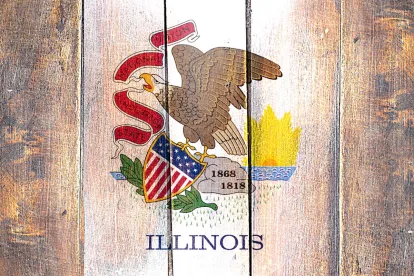On May 19, 2023, the Illinois General Assembly passed substantial amendments to the Day and Temporary Labor Services Act, 820 ILCS 175, through House Bill (HB) 2862. The amendments expand the rights of day and temporary workers and mandate increased safety oversight by both day and temporary labor service agencies and third-party clients that utilize such workers.
The bill was sent to Governor JB Pritzker on June 16, 2023, and is expected to become law. The amendments will be effective July 1, 2023, or upon Governor Pritzker’s signature, if signed after July 1.
Here is what labor agencies and third-party clients need to know.
Quick Hits
-
HB 2862 will take effect on July 1, 2023, or upon Governor Pritzker’s signature, if signed after July 1.
-
The bill contains significant amendments to the Day and Temporary Labor Services Act, requiring increased safety oversight by labor agencies and third-party clients and expanding rights of temporary workers.
-
HB 2862 increases fees and penalties for violations of the Day and Temporary Labor Services Act.
Right of Workers to Refuse Assignments to Third-Party Client Locations Where Labor Disputes Exist
A labor agency—i.e., an “entity engaged in the business of employing day or temporary laborers to provide services, for a fee, to or for any third party client pursuant to contract with the [labor agency] and the third party client”—may not send a worker to a third-party client where there is a strike, lockout, or other labor trouble without informing the worker, in writing and in a language understood by the worker, of the labor dispute and the worker’s right to refuse the assignment “without prejudice to receiving another assignment.” Notice must be given at the time of or before the assignment to the third-party client.
Equal Pay for Equal Work
Under the amendments, workers assigned to a third-party client for more than ninety calendar days must be paid, by the labor agency, at least the rate of pay and equivalent benefits as the lowest-paid directly hired employee of the third-party client performing at the same level of seniority and the same or substantially similar work. Comparative work includes “substantially similar skill, effort, and responsibility … performed under similar working conditions.” If there is not a directly hired comparative employee of the third-party client, the worker must be paid at the rate of pay and equivalent benefits of the lowest-paid directly hired employee of the third-party client with the closest level of seniority.
Equivalent benefits may be compensated by the labor agency paying the worker the cash equivalent of the third-party client’s actual cost of the comparator’s benefits.
Third-party clients must, on request from the labor agency, timely provide all necessary information regarding job duties, pay, and benefits to facilitate the labor agency’s compliance. Failure to do so will constitute a notice violation, and an aggrieved party may recover compensatory damages in an amount up to $500 for each violation, as well as attorneys’ fees and costs.
Requirement of Labor Agencies and Third-Party Clients to Take Steps to Provide Oversight of Worker Safety
Labor agencies have a statutory responsibility to provide some safety oversight of workers at third-party client worksites. In advance of sending workers to a client worksite and during the contract, labor agencies must:
-
inquire about the third-party client’s safety and health practices and any hazards to workers at the client’s worksites. Labor agencies have the right to visit the client’s worksite to observe and assess the safety conditions;
-
make the third-party client aware of any job hazards it becomes aware of, urge the client to correct the hazard, document the efforts to inform and urge the client, and remove workers from the client’s site if the hazards are not remedied;
-
provide, at no cost to the workers, general awareness safety training for recognized industry hazards the workers may encounter at the client’s worksite. This training must be provided in the preferred language of the workers. The labor agency must maintain a record of the training date and training content, and provide it to the workers;
-
transmit to the client a general description of the labor agency’s training program, including topics covered;
-
provide workers with the Illinois Department of Labor hotline number for reporting safety hazards and concerns; and
-
inform workers whom they should report safety concerns to at the client’s worksite.
The third-party client has related safety responsibilities. Before a labor agency engages in work for a client, the third-party client must:
-
document and inform the labor agency about anticipated hazards that the workers will most likely encounter;
-
review the safety and health awareness training provided by the labor agency to determine if it address the recognized hazards for the client’s industry;
-
provide workers with specific training tailored to the particular hazards at the client’s worksite;
-
document and maintain records of site-specific training and provide confirmation of such training to the labor agency within three business days of providing the training; and
-
if supervising workers, provide worksite-specific training to the workers and allow the labor agency to visit the worksite in order to observe and confirm the client’s training and information related to job tasks, safety, and health practices and hazards.
Additionally, if the third-party client changes the workers’ job tasks or work location, and new hazards may be encountered, it must inform both the workers and the labor agency before the workers perform the new tasks, and, if necessary, update the workers’ personal protective equipment and training.
Workers, or a labor agency, may refuse a new job if the task has not been reviewed with the workers or if the workers have not had appropriate training to perform the new task.
Illinois Attorney General Action
It has long been unlawful under the Day and Temporary Labor Services Act for a labor agency to operate without registering with the Illinois Department of Labor and for a third party to use an unregistered agency. The Illinois attorney general will have the authority to request that a circuit court suspend or revoke the registration of a labor agency when warranted by a public health concern or a violation of the Day and Temporary Labor Services Act.
Actions for Civil Penalties Brought by Interested Parties
An “interested party” is defined as “an organization that monitors or is attentive to compliance with public or worker safety laws, wage and hour requirements, or other statutory requirements.” If an interested party has a reasonable belief that a labor agency or a third-party client violated the Day and Temporary Labor Services Act, the party may bring a civil action in a county where the alleged offenses occurred after exhausting remedies with the Illinois Department of Labor. A claim must be made within three years of an alleged violation. An interested party may recover penalties, as noted below, and injunctive relief. If an interested party prevails in a civil action, it will receive 10 percent of the statutory penalties assessed, plus attorneys’ fees and expenses. The remaining 90 percent of any penalties assessed will be deposited into the Child Labor and Day and Temporary Labor Services Enforcement Fund.
Increased Registration Fees and Penalties
The annual fee to register a labor agency with the Illinois Department of Labor has increased to $3,000 per agency (up from $1,000) and $750 for each branch office (up from $250).
A labor agency or third-party client that violates the Day and Temporary Labor Services Act is subject to the following increased penalties:
-
not less than $100 and not more than $18,000 (up from a penalty of not more than $6,000) for violations found in a first audit by the Illinois Department of Labor or determined by a court in a civil action brought by either the Illinois attorney general or an interested party;
-
not less than $250 and not more than $7,500 (up from a penalty of not more than $2,500) for each repeat violation found by the Illinois Department of Labor or court within three years.
A separate and distinct violation may be found for each violation, for each day or worker, and for each day the violation continues.
A third-party client may also be subject to a civil penalty of not less than $100 and not more than $1,500 (up from a penalty not to exceed $500) each day it contracts with a labor agency that is not registered with the Illinois Department of Labor.
Key Takeaways
In light of the anticipated signing of HB2862 and its immediate effect, labor agencies and third-party clients that use them may want to consider taking steps right away to update policies and procedures to address the sweeping changes. Labor agencies and third-party clients may want to consider their respective obligations to request and to provide wage and benefit data. Both labor agencies and third-party clients may also want to consider reviewing their safety and job hazards training. Finally, both labor agencies and third-party clients may benefit from reviewing their contracts to determine if there is a confidentiality provision that addresses the information they will now be sharing with each other.





 />i
/>i

